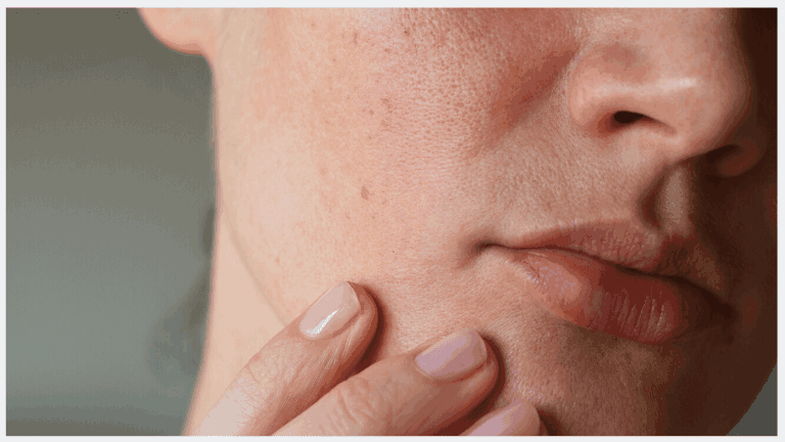
Many people say they have sensitive skin because skin care products, or home remedies that they use as masks, can cause itching, burning, redness or irritation. Others have no noticeable effects, but say they have sensitive skin because after contact with a product, their skin feels uncomfortable.
However, here is what dermatologists look for when diagnosing "sensitive skin":
- Skin reactions such as pustular marks, bumps on the skin, etc.
- Very dry skin, which does not properly protect the nerve endings in the skin
- A tendency towards redness of the skin
Sensitive skin is not a disease that a doctor can diagnose. It is usually a symptom of another condition and people do not know they have sensitive skin until they have a bad reaction to a cosmetic product, or another factor.
In most cases, the condition is not very serious or problematic and can be kept under control with a few simple changes to the skin care routine.
How do you know if you have sensitive skin or not?
The best way to find out if you have sensitive skin or if something else is causing your current skin problem is to check the skin by a dermatologist.
Are there any medical tests for sensitive skin?
Patch testing can identify signs of allergies that cause or contribute to sensitive skin. On the contrary, it is difficult for doctors to directly test sensitive skin because there are many factors that can cause it and as we said - it is not a direct disease.
What causes the reactions of a sensitive skin?
Some of the causes include:
- Skin disorders or allergic reactions such as eczema, rosacea or allergic contact dermatitis
- Extremely dry skin
- Excessive exposure to environmental factors that damage the skin, such as sun and wind or excessive heat / cold
- Genetic factors, age, gender and racial changes in skin sensitivity are less defined, but they can also play a role in causing skin reactions

Source: WebMD, Healthline





